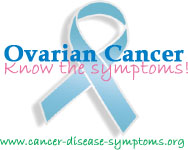Wednesday, December 13, 2006
What Factors Influence Perception of Risk and Screening Behavior
Screening asymptomatic women at average risk of ovarian cancer with available methods transvaginal ultrasound and the CA-125 test has not been shown to be effective and is, therefore, not recommended. Clinical trials currently underway, however, may offer further insight. Such screening procedures, as well as genetic counseling, are recommended for women with a strong family history of cancer indicative of a hereditary genetic mutation, such as BRCA1 or BRCA2. Although the literature demonstrates a positive association between family history and screening behavior, several recent studies have found that women most likely to report high levels of perceived risk and high levels of screening for ovarian cancer were not women at highest risk. In addition, women at high risk for ovarian cancer may not be receiving recommended clinical evaluations. Gaining a comprehensive understanding of the role of risk perception in cancer screening adherence is a priority area for behavioral research in cancer prevention and control. Identifying and elucidating the processes by which women arrive at their perceptions of vulnerability to cancer can shed light on how they make decisions to undergo screening or engage in preventive behaviors. To examine the determinants of perceived risk and its influence on screening behaviors, DCPC is conducting a study of approximately 2000 women at average, elevated, and high risk who will be randomly selected from enrollees in a managed care organization with a racially diverse population. As part of the study, Risk Perception, Worry, and Use of Ovarian Cancer Screening among Women at Average, Elevated, and High Risk of Ovarian Cancer, women will be interviewed by telephone to collect information on family history of cancer, perceived risk, cancer worry, anxiety, personal experiences with cancer in family or friends, and intent to undergo screening or actual screening behavior. A 1-year follow-up telephone interview will be conducted to assess changes in perceived risk or family history of cancer and additional screening activity. The results of this investigation could have important implications for encouraging the appropriate use of screening and for informing educational and communication efforts to maximize screening effectiveness and minimize worry for women at average and elevated risk.
Subscribe to:
Post Comments (Atom)

2 comments:
Dr. Priya Tiwari is very humble and explained our health issue in a detailed manner. We are very happy that we got hir reference.
Breast Cancer Doctor in Delhi | Breast Cancer Treatment in Delhi | Best Cancer Treatment Center in Delhi | Best Medical Oncologist in Delhi | Stomach Cancer Treatment in Delhi
Good day everyone, two months ago I was diagnosed with (urethral cancer), which had caused me a great deal of pain and pressure on my bladder. My doctor insisted that there was no other choice but to go under the knife. So everyday I was online searching for herbal medication. I never want to undergo any surgery. so. I have so many testimonies on how they were healed by dr. Imoloa herbal medication. without wasting time i contacted him (dr. Imoloa). on how to get the herbal remedies. I received the herbal package in less than a month, and I followed the steps and procedure on how I should be taking it. and one months later I was scheduled for an ultrasound check: it was shocking. The cancer had completely gone, I had consulted my doctor and canceled the surgery and with your dedicated counseling guidance I managed to completely treat the urethral cancer, along with the pain and anxiety that this condition had inflicted on me. a big thanks to God almighty, thank you Dr. Imoloa for the powerful herbal medication you have to cure people. you reach him on Email- drimolaherbalmademedicine@gmail.com
WhatsApp number- +2347081986098.
Post a Comment